It may come as a surprise to learn that chickens will eat eggs out of the nest boxes, but who can blame them? Everyone loves fresh eggs! However, egg-eating is a habit that should be discouraged as soon as possible after discovery. Not only does it reduce the number of eggs available for collection, it is also a habit that is quickly learned by other flock members.
Many sources recommend culling (aka: physically removing or killing) an egg eating chicken from the flock, but I do not believe that culling an egg-eater is necessary. While it is a difficult habit to break, is not impossible to overcome with some easily implemented strategies.
EGG-EATING THEORIES
- Innocent exploration of a broken egg in the nest box. Reasons for broken eggs in nest boxes range from the presence of too few nest boxes, more than one hen jockeying for position in a nest box, bored chickens and broody hens intimidating laying hens and monopolizing the nests.
- Improper diet (wrong feed or too many treats/scraps, not offering oyster shell in a separate hopper, etc.) can result in a lack of protein, Vitamin D or calcium deficiency, leading chickens to seek out alternate sources of nutrition.
- Stress from being disturbed or startled in the nest box can cause breakage, creating a curiosity and the opportunity for the habit to begin.
- Exposed or brightly lit nest boxes may lead to nervousness and picking at eggs. Hens prefer dark, private locations for egg-laying.
- Thirsty hens may eat eggs for the liquid. (I think this theory is a stretch, but…it’s possible.)
IDENTIFYING THE CULPRITS
- The coop should be check for possible security. Predators such as rats, weasels and snakes are known egg thieves; even the smallest of holes in hardware cloth can allow an egg-eater access to the goods. If no egg thieves are identified, missing eggs are likely due to a flock member.
- Take note of activity around the nest boxes during peak egg-laying times; egg-eaters can be found loitering around them, looking for their next snack.
- Egg-eating is messy business; egg-eaters can usually be found with egg yolk on their beaks, faces or feathers.
Evidence that there is an egg eater is obvious when inspecting the nest boxes as there will be egg residue at the bottom. For nesting material, I use plastic nest pads for several reasons, including for ease of cleaning the nest boxes and identifying egg-eating chickens.
PREVENTION AND REHABILITATION
- Collect eggs frequently. If eggs aren’t in the nest box, they can’t be eaten.
- Provide at least one nest box for every four hens.
- Break broody hens that are not sitting on hatching eggs to free-up nest box space.
- Move broody hens sitting on hatching eggs to a separate location, away from laying hens to free up nest box space and avoid developing embryos becoming someone’s lunch.
- Ensure adequate nest box material, which will reduce the likelihood of eggs cracking on the hard floor. Plastic nest pads are much better choices than pine shavings or straw. Employ roll-out nests, which roll eggs out of the nest when laid, removing any temptation or opportunity.
- Provide layer feed for laying hens and limit treats (treats=anything that isn’t their layer feed, even things we consider healthy things) in order to avoid nutritional deficiencies.
- Supply oyster shell in a separate dish to strengthen eggshells of all layers and reduce the probability of weak-shelled eggs breaking accidentally.
- Allow hens to work, undisturbed in the morning, keeping busy children and other noises away from the hen house to minimize stress and nervous picking.
- Ensure adequate space in the coop and run for chickens that do not free-rage. Minimum recommendations are 4 square feet per bird inside the coop and 10 square feet per bird in the run. Provide confined flocks with boredom-busting enrichment activities.
My personal last resort is to segregate the egg-eater daily until the rest of the flock has finished laying eggs for the day. Worst case scenario, they eat their own eggs, but not anyone else’s. Egg-eating need not be cause for culling a chicken from a backyard flock.
Kathy Shea Mormino
Affectionately known internationally as The Chicken Chick®, Kathy Shea Mormino shares a fun-loving, informative style to raising backyard chickens. …Read on


shop my SPONSORS
It may come as a surprise to learn that chickens will eat eggs out of the nest boxes, but who can blame them? Everyone loves fresh eggs! However, egg-eating is a habit that should be discouraged as soon as possible after discovery. Not only does it reduce the number of eggs available for collection, it is also a habit that is quickly learned by other flock members.
Many sources recommend culling (aka: physically removing or killing) an egg eating chicken from the flock, but I do not believe that culling an egg-eater is necessary. While it is a difficult habit to break, is not impossible to overcome with some easily implemented strategies.
EGG-EATING THEORIES
- Innocent exploration of a broken egg in the nest box. Reasons for broken eggs in nest boxes range from the presence of too few nest boxes, more than one hen jockeying for position in a nest box, bored chickens and broody hens intimidating laying hens and monopolizing the nests.
- Improper diet (wrong feed or too many treats/scraps, not offering oyster shell in a separate hopper, etc.) can result in a lack of protein, Vitamin D or calcium deficiency, leading chickens to seek out alternate sources of nutrition.
- Stress from being disturbed or startled in the nest box can cause breakage, creating a curiosity and the opportunity for the habit to begin.
- Exposed or brightly lit nest boxes may lead to nervousness and picking at eggs. Hens prefer dark, private locations for egg-laying.
- Thirsty hens may eat eggs for the liquid. (I think this theory is a stretch, but…it’s possible.)
IDENTIFYING THE CULPRITS
- The coop should be check for possible security. Predators such as rats, weasels and snakes are known egg thieves; even the smallest of holes in hardware cloth can allow an egg-eater access to the goods. If no egg thieves are identified, missing eggs are likely due to a flock member.
- Take note of activity around the nest boxes during peak egg-laying times; egg-eaters can be found loitering around them, looking for their next snack.
- Egg-eating is messy business; egg-eaters can usually be found with egg yolk on their beaks, faces or feathers.
Evidence that there is an egg eater is obvious when inspecting the nest boxes as there will be egg residue at the bottom. For nesting material, I use plastic nest pads for several reasons, including for ease of cleaning the nest boxes and identifying egg-eating chickens.
PREVENTION AND REHABILITATION
- Collect eggs frequently. If eggs aren’t in the nest box, they can’t be eaten.
- Provide at least one nest box for every four hens.
- Break broody hens that are not sitting on hatching eggs to free-up nest box space.
- Move broody hens sitting on hatching eggs to a separate location, away from laying hens to free up nest box space and avoid developing embryos becoming someone’s lunch.
- Ensure adequate nest box material, which will reduce the likelihood of eggs cracking on the hard floor. Plastic nest pads are much better choices than pine shavings or straw. Employ roll-out nests, which roll eggs out of the nest when laid, removing any temptation or opportunity.
- Provide layer feed for laying hens and limit treats (treats=anything that isn’t their layer feed, even things we consider healthy things) in order to avoid nutritional deficiencies.
- Supply oyster shell in a separate dish to strengthen eggshells of all layers and reduce the probability of weak-shelled eggs breaking accidentally.
- Allow hens to work, undisturbed in the morning, keeping busy children and other noises away from the hen house to minimize stress and nervous picking.
- Ensure adequate space in the coop and run for chickens that do not free-rage. Minimum recommendations are 4 square feet per bird inside the coop and 10 square feet per bird in the run. Provide confined flocks with boredom-busting enrichment activities.
My personal last resort is to segregate the egg-eater daily until the rest of the flock has finished laying eggs for the day. Worst case scenario, they eat their own eggs, but not anyone else’s. Egg-eating need not be cause for culling a chicken from a backyard flock.



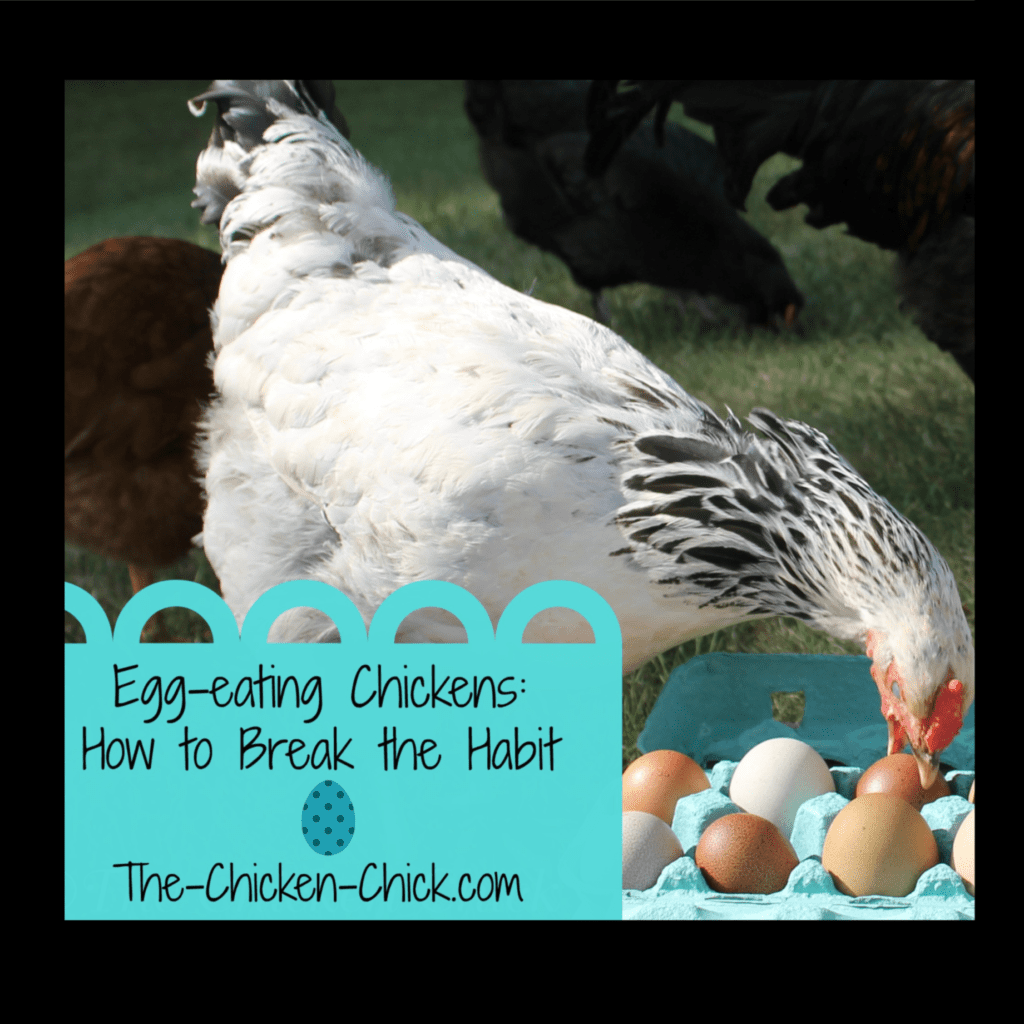
.JPG&container=blogger&gadget=a&rewriteMime=image%2F*)
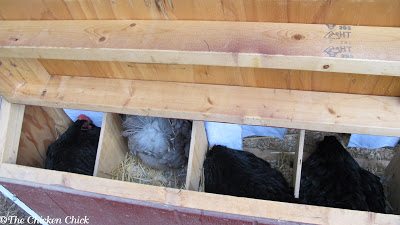
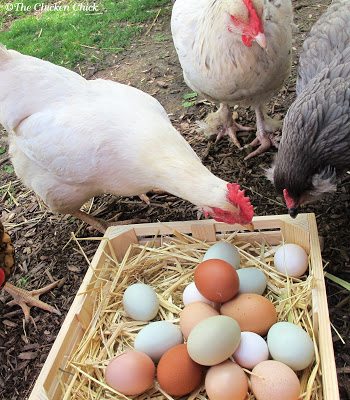

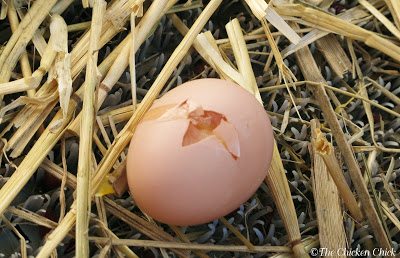
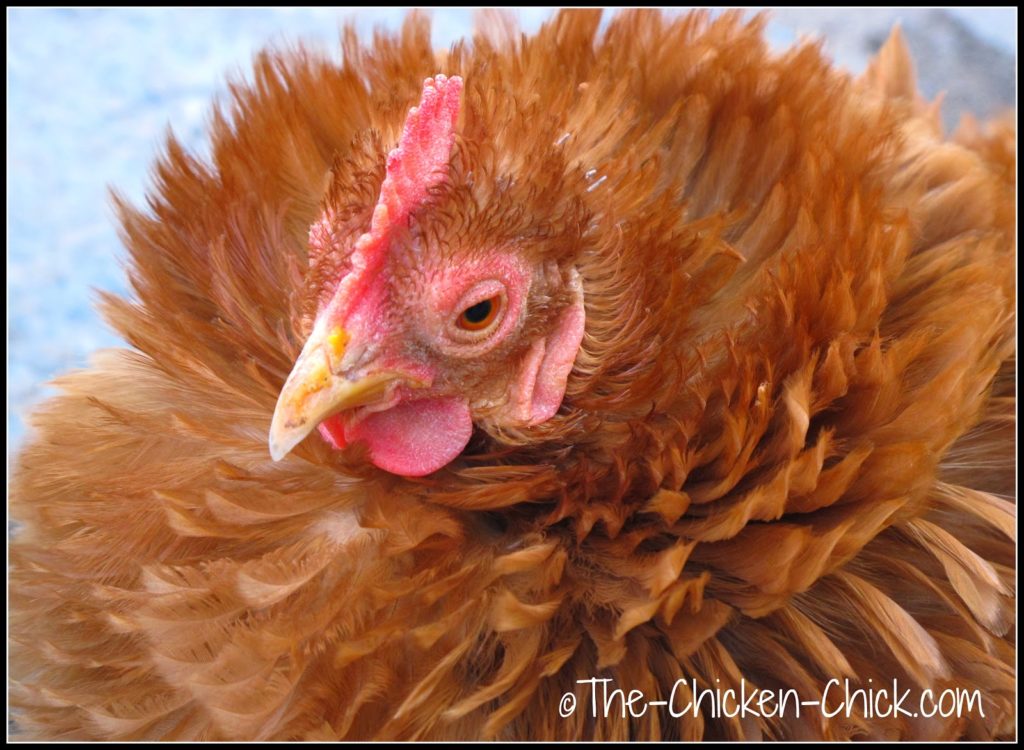

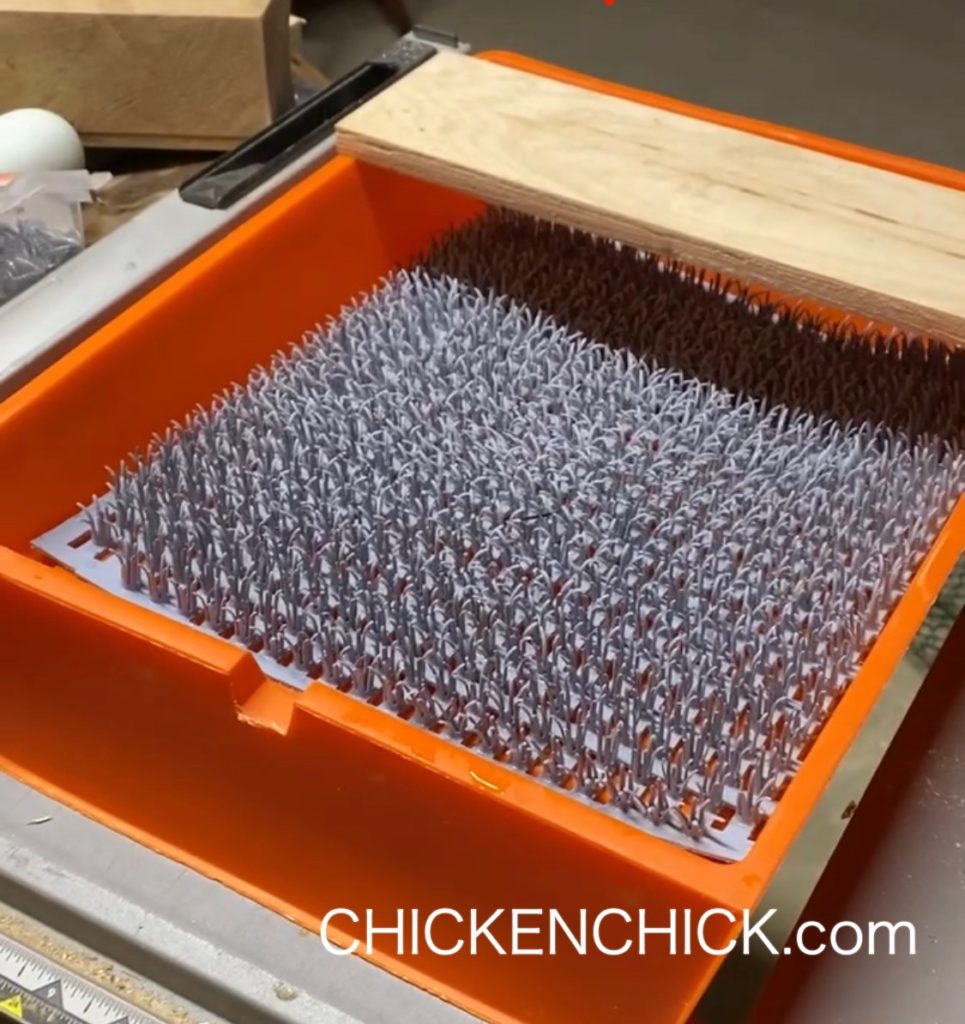
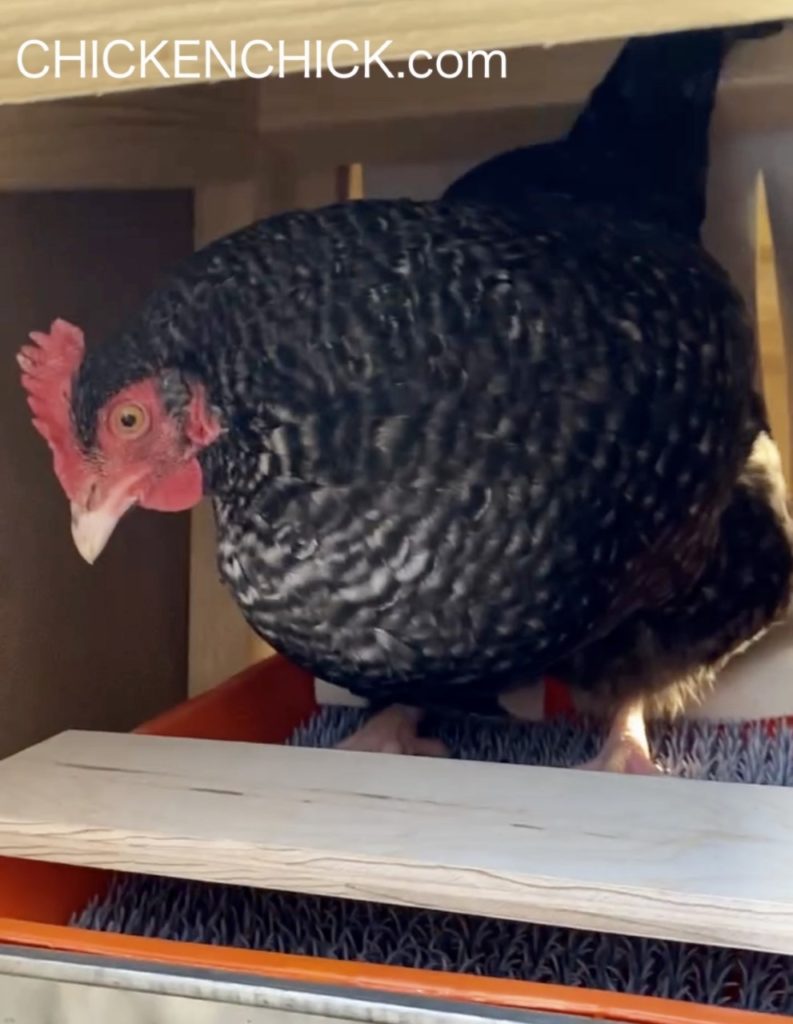
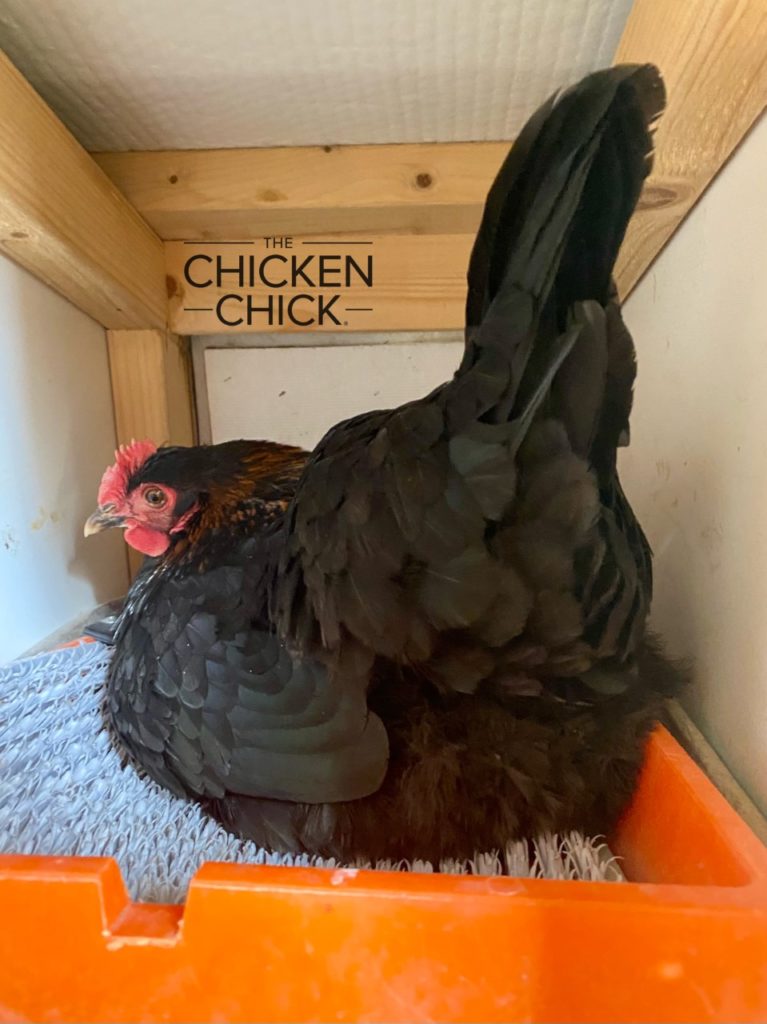
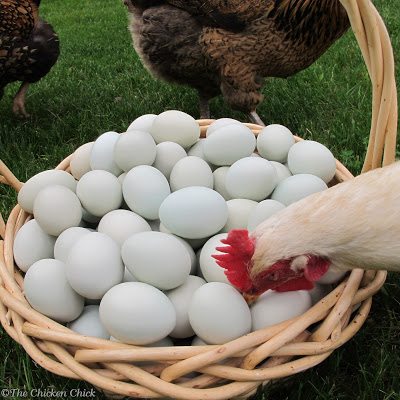
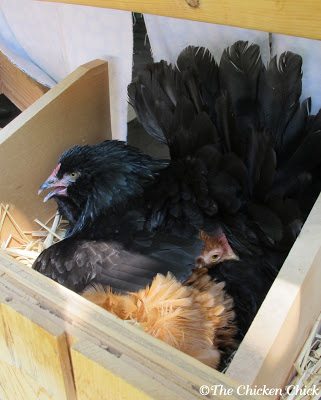

















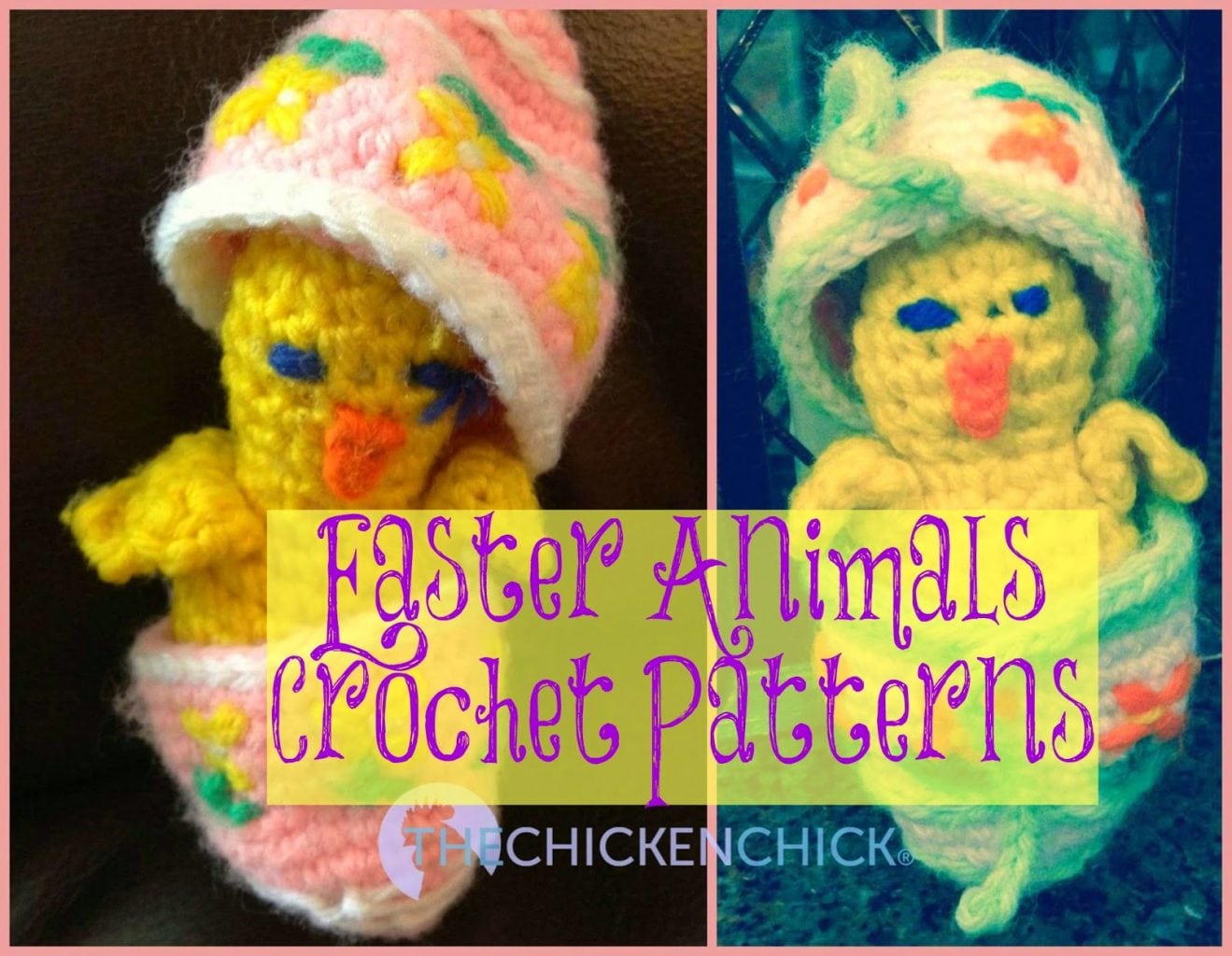






ATET submission. She had an illicit affair with the rooster from up the road. She laid an egg from which he was the father. It was her first. In a panic, she pushed it to another nesting box and a future HIB was born. Robin B.
ATET submission: Melinda looked long and hard with her beady left eye at Doc Brown's beady right eye, she had to tell someone the secret she has kept in her little head for oh so long. She had a dark shell over her head each time she thought about why she decided not to enter the chicken convent. She finally started to bawk to Doc Brown and spilled her crop that when she was a pullet laying in the nesting box hoping for the day to come to lay her first egg it happened, she layed her egg! She was… Read more »
I have a hen eating an egg or two every day but I am having trouble trying to determine the culprit I added oyster shell but will try the vinegar hopefully it will help. Their nest boxes are dark so no need for curtains. Thanks for the article.
The Lancaster Farming had a article recently, about chickens that eat eggs. A remedy was give to add 1 c of Apple Cider Vinegar to 1 gal of water, for their water. We have been trying it for 1 1/2 weeks. The only time they seem to eat them, is if there was not enough vinegar in the water.. We are happy to be getting the eggs instead of them!
One of my chickens started eating eggs after I cleaned out their nesting area. I put oyster shell out for them, put golf balls in the nest, and filled blown eggs with mustard. My little Rhode Island Red is not eating eggs any more! I think it was the mustard! :) Thank you!